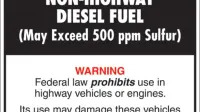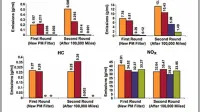Obama Administration Drives Ahead With New Cleaner Gas Rule
The Obama administration is driving ahead with a dramatic reduction in sulfur in gasoline and tailpipe emissions, declaring that cleaner air will save thousands of lives per year at little cost to consumers.







